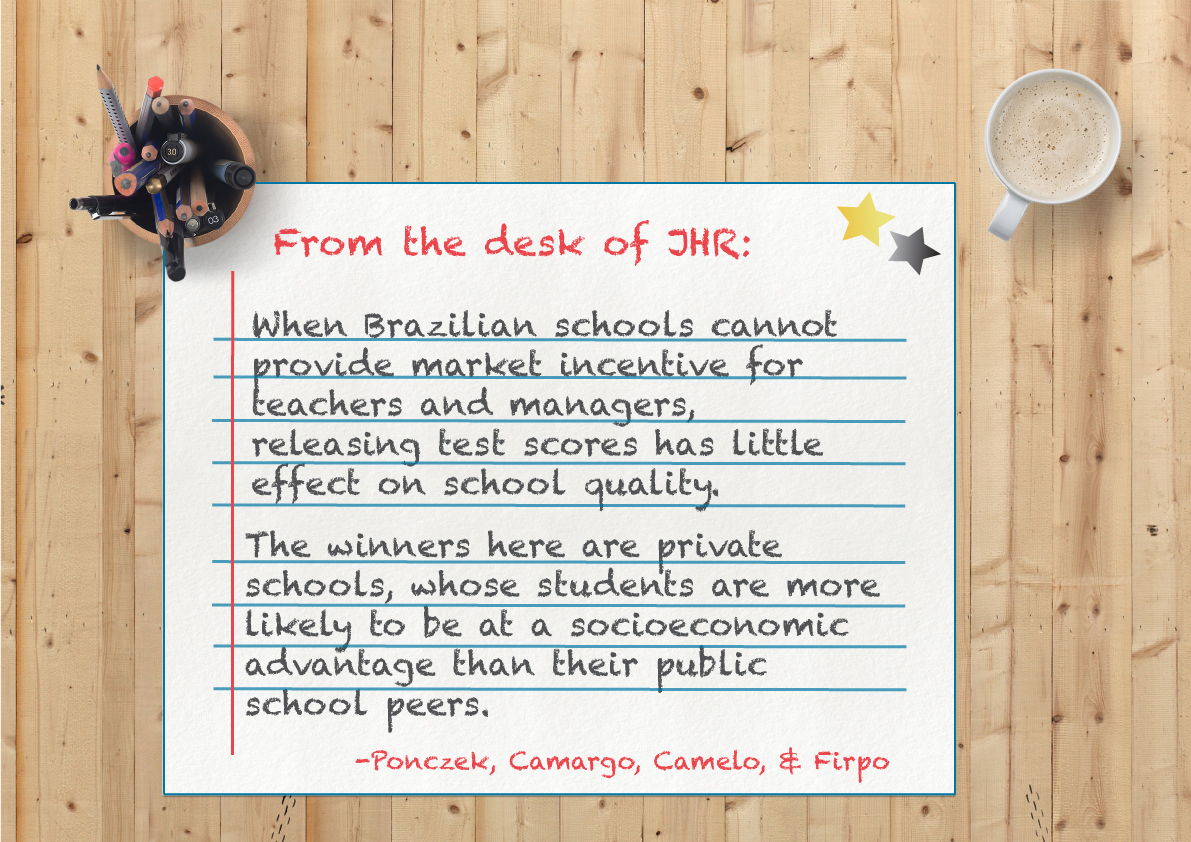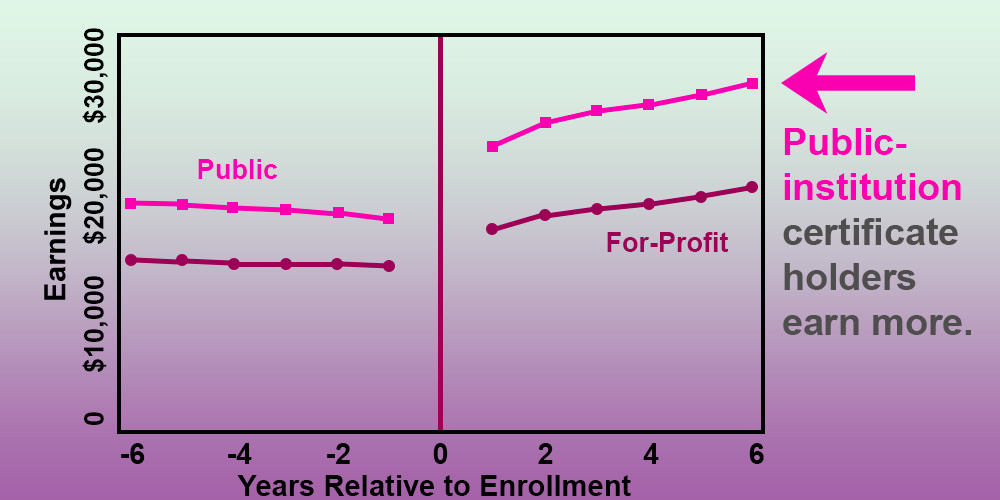Does More Information, Like Releasing Test Scores, Improve Schools? Yes, But Not All
The use of school accountability systems is becoming increasingly popular as a way of changing school behavior to improve school performance. School accountability systems can be divided into two broad categories: soft and hard accountability systems. Soft accountability systems provide information about school performance to parents, students, and the schools themselves, which can influence school behavior. Hard accountability systems tie rewards and punishments to school performance, directly affecting incentives faced by schools. A new study looks at the effect of releasing information about school performance on future performance.
Most work on the impact of school accountability on school performance considers hard accountability systems. Since such systems not only change school incentives, but also provide information about school performance, it is difficult to disentangle the impact of a change on school incentives from the impact of a change on the information available about school performance.
Braz Camargo (Sao Paulo School of Economics), Rafael Camelo (Plano CDE Institute), Sergio Firpo (Insper Institute of Education and Research; IZA), and Vladimir Ponczek (Sao Paulo School of Economics) were able to isolate and study the effect of releasing information about school performance on a school’s future performance. To do this, they took advantage of a feature of the test score disclosure rules for the National Secondary Education Examination (ENEM) in Brazil that implies that some schools have their (average) ENEM scores released but other schools that are otherwise identical do not have their scores released. It was important that the disclosure of ENEM scores is not tied to any hard accountability system in Brazil, so they could isolate the effect of information disclosure.
They found that test score disclosure has an impact on school performance—but only in private schools. An important thing to note about Brazil is that public schools are not subject to market incentives—wages in Brazilian public schools are set by the government and vary exclusively with time on the job and schooling level. This suggests that market incentives play a crucial role in shaping the response of private schools to test score disclosure. In support of this finding, they also found that the impact of test score disclosure on the performance of private schools is stronger in less concentrated school markets where there is more competition to attract students.
The results suggest that soft accountability systems can be effective in changing school behavior, but only if schools are subject to market incentives. Thus, while soft accountability systems might be easier to implement, their scope for changing school behavior might be more limited.
Read the full study in the Journal of Human Resources: “Information, Market Incentives, and Student Performance: Evidence from a Regression Discontinuity Design in Brazil” by Braz Camargo, Rafael Camelo, Sergio Firpo, and Vladimir Ponczek


